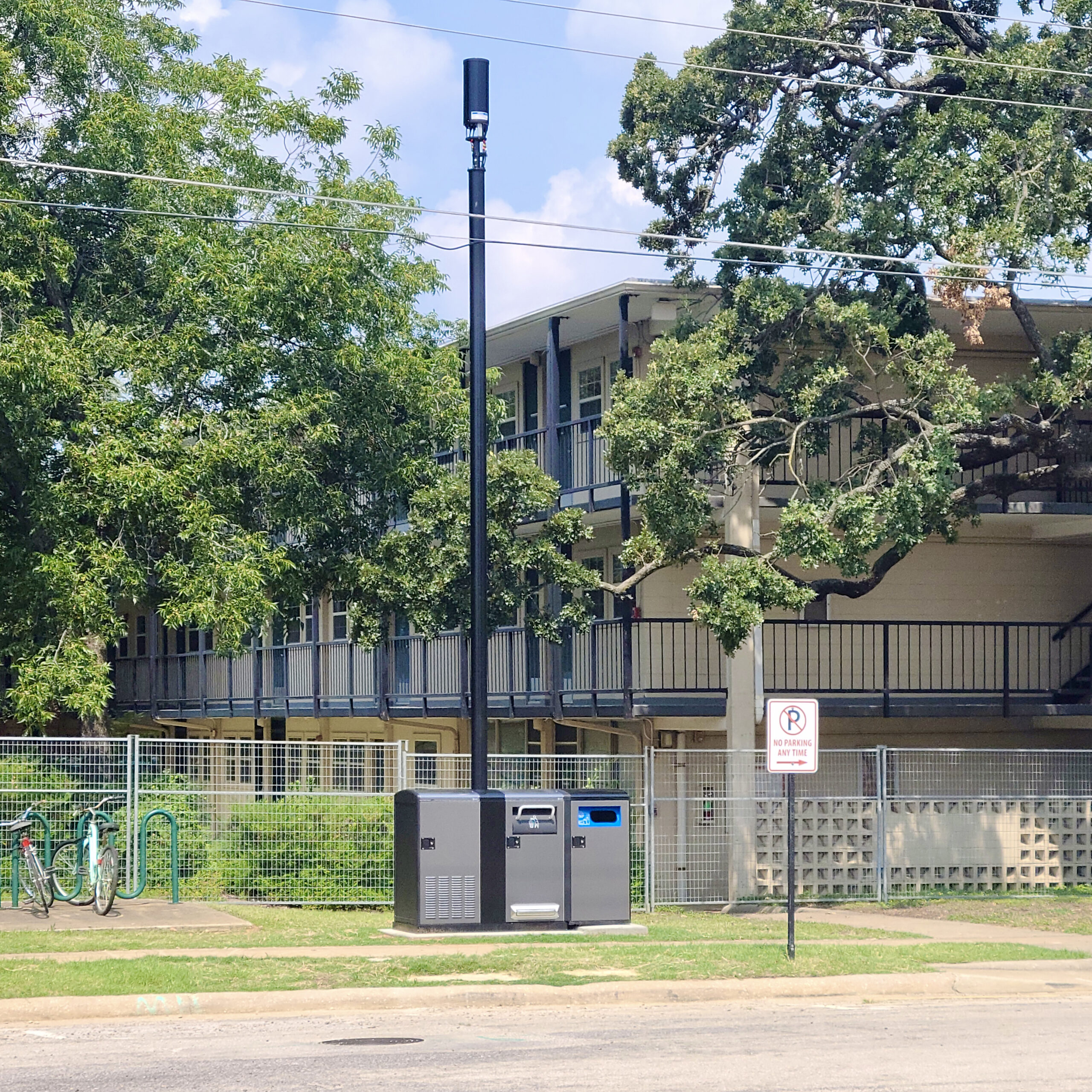
Recycling organic products and materials reduces the accumulation of organics in the city. Think that ripe not so sweet smell wafting through city alleyways or trash bins…
By separating organics from landfill garbage, cities can recycle those nutrients to create a ‘fertilizer’ waste stream that can be used by urban victory gardeners and commercial farmers who grow larger scale volumes of produce. Urban public space composting embodies our favorite 3 R’s – reduce, reuse, recycle. Some communities are creating public composting sites and offering organic waste bins on sidewalks and in parks to encourage organic waste recycling. In turn, this organic matter can be converted to commercial products while decreasing landfill waste and boosting the economic gain.
The benefits extend well beyond the financial gains of new revenue streams. Food waste negatively affects the environment. Think of the wasteful use of chemical fertilizers and pesticides plus fuel consumed for transportation and storage. But there’s more…rotting food adds to the one of the most harmful greenhouse gases contributing to climate change. Organic food waste is the second highest component of landfills, and as it sits idle rotting, it becomes the largest source of methane emissions. According to UNEP reports, methane is 23 times more potent than CO2 as a greenhouse gas. Keeping tipping fees in mind, composting also removes the heaviest waste from the landfill stream.
30% of all food is thrown out in the United States each year! A total of $165.6 billion worth of food was lost at the retail and consumer levels in a single year. At the consumer level meat, poultry, fish, vegetables and dairy counted for the highest value of food loss in the $390 per capita loss per year. By household, which averages 2.4 persons in the US, loss at the consumer level reached $936 per year or $2.56 per day (Source: Science Direct).
Organic matter is a precious material. Rather than dumping it in a landfill, consider composting food scrapes and plant clippings in your community, which can be used by commercial and local farmers or even members of local neighborhood Victory Gardens.
Urban composting is rather easy, even with limited space and time. Cities around the US offer various programs and services that make municipal composting a reality from public space compost bins to food waste collection.
Urban organics programs can take the shape in communal collection points, such as the North London authority’s streetside food waste collection. “The move represents the latest attempt by a local authority to slash costs in the face of swingeing budget cuts and, in addition to changes to garden waste collections, is hoped to save the council £500,000 in 2015/16″ according to an artcle published by LetsRecycle.com covering the program. The article continues to explain that “communal food waste facilities have been placed ‘within reasonable walking distance’ of homes and residents are encouraged to compost their food waste at home or take it to these locations [… and…] garden waste will be collected from communal collection points in parks or collected from households for a fee.” This London area neighbordhood boasts a participation rate of approximately 30% of households in the area. Another program example is food waste collection which works like recycling programs where compost bins are collected regularly. Collected waste is sent to a processing facility that turns the scraps into compost, which is sold to residents and commercial farmers. Towns with local waste collection or waste transfer facilities set aside an area where residents can dispose of food scrapes and yard waste that is turned into compost.
Not everything is considered acceptable organic waste matter. Generally speaking, municipal compost programs accept:
- Bread
- Compostable packaging
- Dairy products
- Egg shells
- Elmer’s glue
- Fish – including crab, lobster, shrimp
- Food soiled paper: paper cups & paper plates
- Fruits and vegetables – fresh and frozen, peelings
- Hair and lint
- Meat (including bones)
- Newspapers
- Nut shells
- Old leather
- Old pasta
- Old spices and herbs
- Paper – including napkins, Post-it notes, unpaid bills
- Tea bags and grounds
- Tobacco waste
- Wood – ashes, chips and sawdust
Additional resources:
- 163 Things You Can Compost (and the list keeps growing!): http://www.plantea.com/compost-materials.htm
- EPA’s State-by-State Guide to Composting: http://www.epa.gov/composting/live.htm
- Interesting Composting Program Examples: http://www.biocycle.net/2015/01/15/residential-food-waste-collection-in-the-u-s-2/



